These Are the Only 7 Products That Have Helped My Hyperpigmentation
Ever since I was a teenager and I started to get hormonal spots, I have been aware of the dark marks that breakouts leave behind. Although at the time, I had no idea what these lingering patches were called, I knew that they always bothered me more than the actual spot had. It happened all over my body too—not just on my face. Any skin trauma, from a cut to an insect bite, would result in a deep-brown mark on my skin.
A few years back, after the worst forehead breakout I've ever had, the marks were deeper than ever, and they weren't going anywhere. Because I was new to working in the beauty industry at the time, I took to trialling a multitude of skin-resurfacing products, which, when mixed together, only irritated my skin further. Enough was enough, and I decided it was about time to speak to some skin experts for a helping hand. The dark marks were diagnosed as a type of hyperpigmentation and are surprisingly common.
Keep scrolling for everything I've learnt on how to treat hyperpigmentation and the products that actually work.
What is hyperpigmentation?

If I break out, it's normally on my forehead, and the hyperpigmentation will hang around for a while.
"[Hyperpigmentation] refers to patches of skin that are darker than the surrounding skin or natural skin colour," says Bianca Estelle, a skin specialist and the founder of Bea Skin Clinic. "This excess melanin (skin pigment) presents itself in many forms, including 'age spots' (known professionally as solar lentigines), melasma and even freckles. Another common form of hyperpigmentation is post-inflammatory hyperpigmentation (PIH). This type of hyperpigmentation is usually temporary and can occur for many reasons, such as a dermatitis, but even a simple pimple breakout or acne can cause PIH."
One of the most common misconceptions about hyperpigmentation is that it only happens to Black skin. While it is often more visible on dark skin, it can affect everyone.
How to treat hyperpigmentation:

For a while, I perpetually had marks on my forehead post-breakout.
Over the years, I have tried hundreds of products to speed up the fading process as soon as I notice any marks appear, and I finally feel like I have a skincare routine that helps keep it under control. However, one thing I have noticed that's made the biggest difference is wearing a high SPF every single day without fail—even if I'm working from home all day. And it's something that Estelle recommends too.
"When tackling hyperpigmentation, there are ingredients that help to brighten the skin and therefore 'fade' the dark patches, but I'd also recommend taking steps to prevent hyperpigmentation from worsening, and this includes wearing an appropriate SPF." While I still tan in summer, the dark spots don't deepen or become more noticeable because of this extra step in my skincare routine.
Using acids to tackle hyperpigmentation:

My skin sans makeup now that I've found the best ingredients to combat hyperpigmentation.
Adding specific acids into my routine too was a game-changing move for my skin—the right combination faded the hyperpigmentation, plumped the appearance of my skin and evened out the tone. In the past, when acid-based products used terms like brightening, I was always wary of them mainly because of the prevalence of skin-lightening products aimed at Black women that use similar terminology. However, having spoken to many medical professionals and skin experts who have filled me in on what specific acids do and what they're good for, I now feel more confident incorporating them into my skincare routine, and I haven't looked back since.
"If we look at brightening agents, there are alpha-hydroxy acids (aka AHAs) like kojic acid, lactic acid and mandelic acid, plus alpha arbutin. This suppresses tyrosine, which is an enzyme that helps our bodies to produce melanin," explains Estelle. "By blocking this tyrosine pathway, you'll be less reactive to UV trauma and less at risk of hyperpigmentation. These ingredients will also help to prevent melanin-hyper synthesis in the cells."
Given that hyperpigmentation is my biggest skin concern, I have never been happier with my skin than I am right now, and I know it's down to these products…
Shop my picks to treat hyperpigmentation:
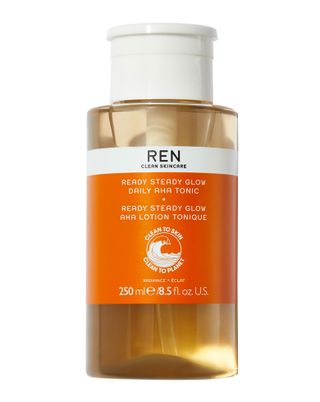
This was my first foray into AHAs that really helped me see a difference in my skin and a more even skin tone. It's gentle enough to use every day, but the key active, lactic acid, is potent enough in the formula to exfoliate dead skin.
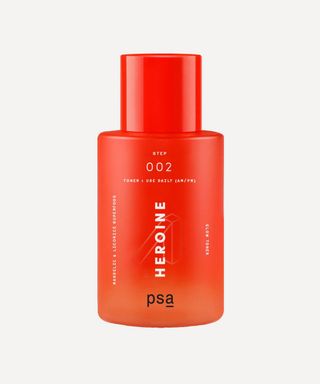
I started using this toner after finishing my Ready Steady Glow Tonic and now rotate them in my routine. This contains mandelic rather than lactic acid for the AHA benefits and also contains niacinamide, which helps to regulate oil if you have oily or combination skin like I do.
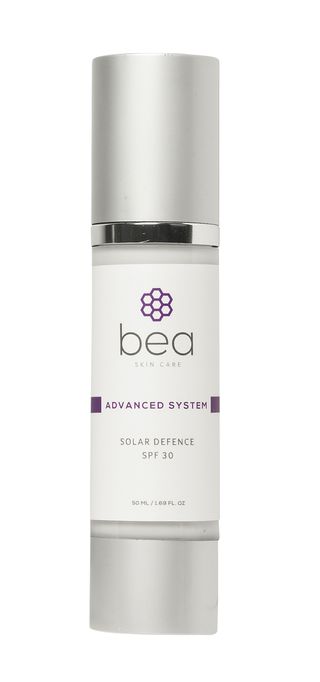
One of my favourite discoveries in the Bea Skin Care line is this SPF. It's lightweight and doesn't leave a chalky residue on Black skin, and the alpha arbutin in the formula works to reduce the appearance of existing sun damage. I always wear at least SPF 30 every day, but if I'm in the sun for most of the day, then it's SPF 50 all the way. My current favourite is Lancaster Sun Sensitive Oil-Free Face Sun Protection Cream SPF50 (£22).
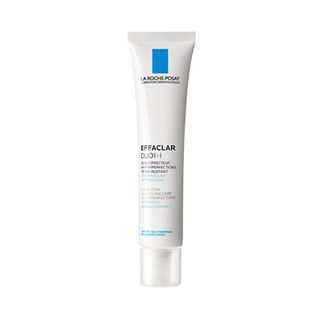
A huge part of preventing post-inflammatory hyperpigmentation is stopping spots in their tracks. The bigger the breakout, the worse the hyperpigmentation. Whenever I feel like my skin is acting out, I use this, and it genuinely reduces breakouts as well as the intense shine I get around my forehead, nose and chin.
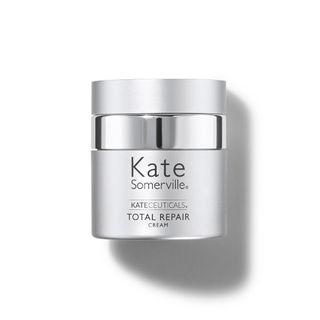
This cream is full of replenishing and hydrating ingredients, so it kind of feels like a comforting end to my nightly skincare routine. The hyaluronic acid, glycerin and ceramides in the formula help to fortify my skin barrier after going in hard with acids.
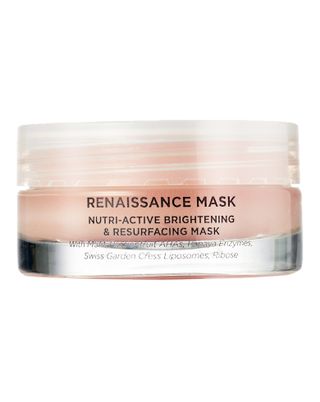
I use this mask weekly for an extra kick to keep my skin texture smooth and the tone as even as possible. I apply it to the skin around my nose, forehead and chin to keep it decongested and spot-free.
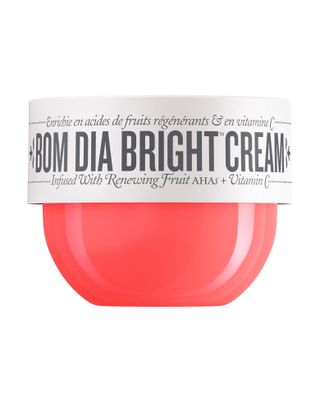
Not forgetting my body, I manually exfoliate (mainly via dry brushing now), and then use this body cream, which contains fruit acids to fade marks and encourage an even glow.
Up next: This is the best routine for acne, according to a dermatologist.